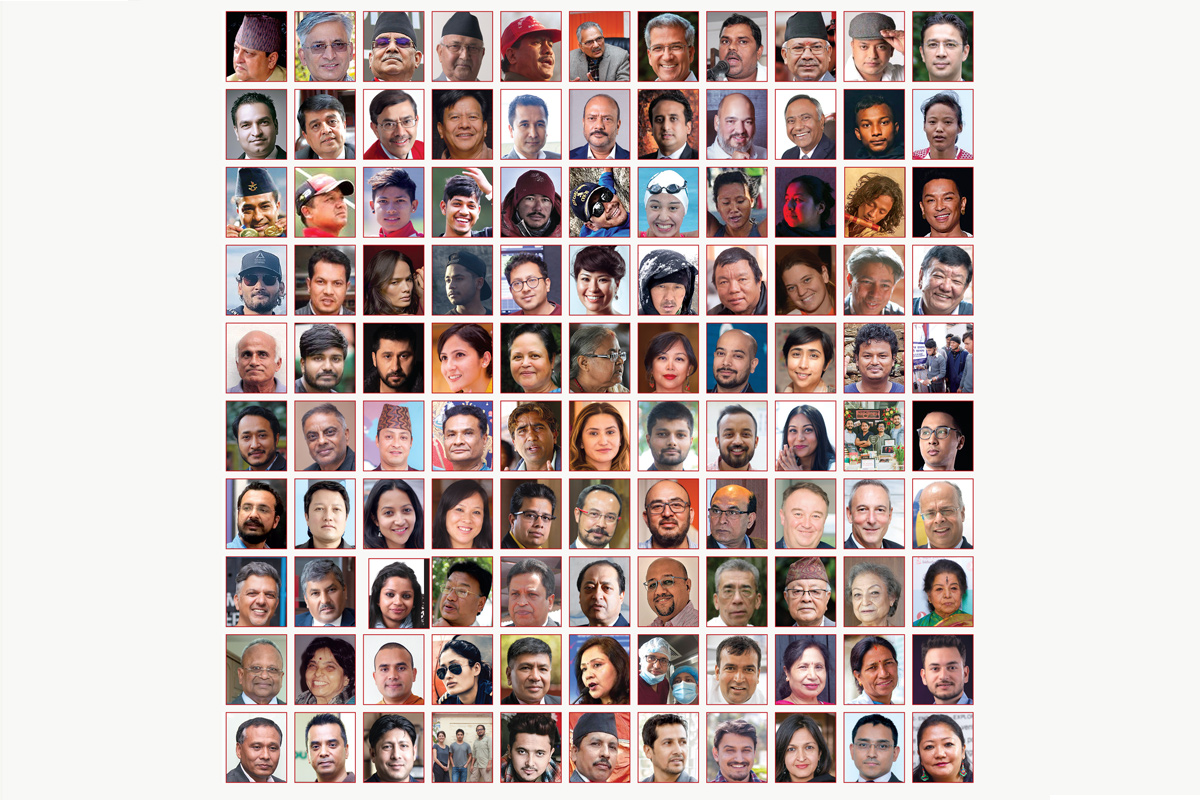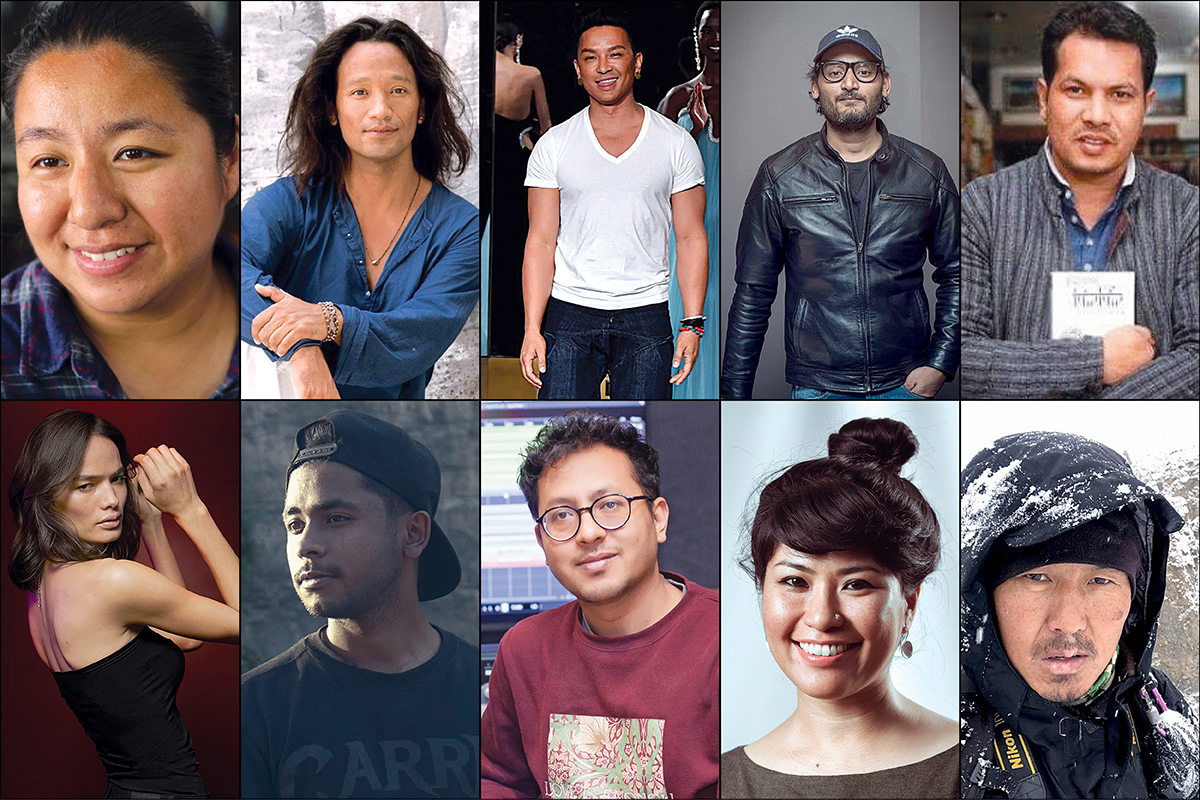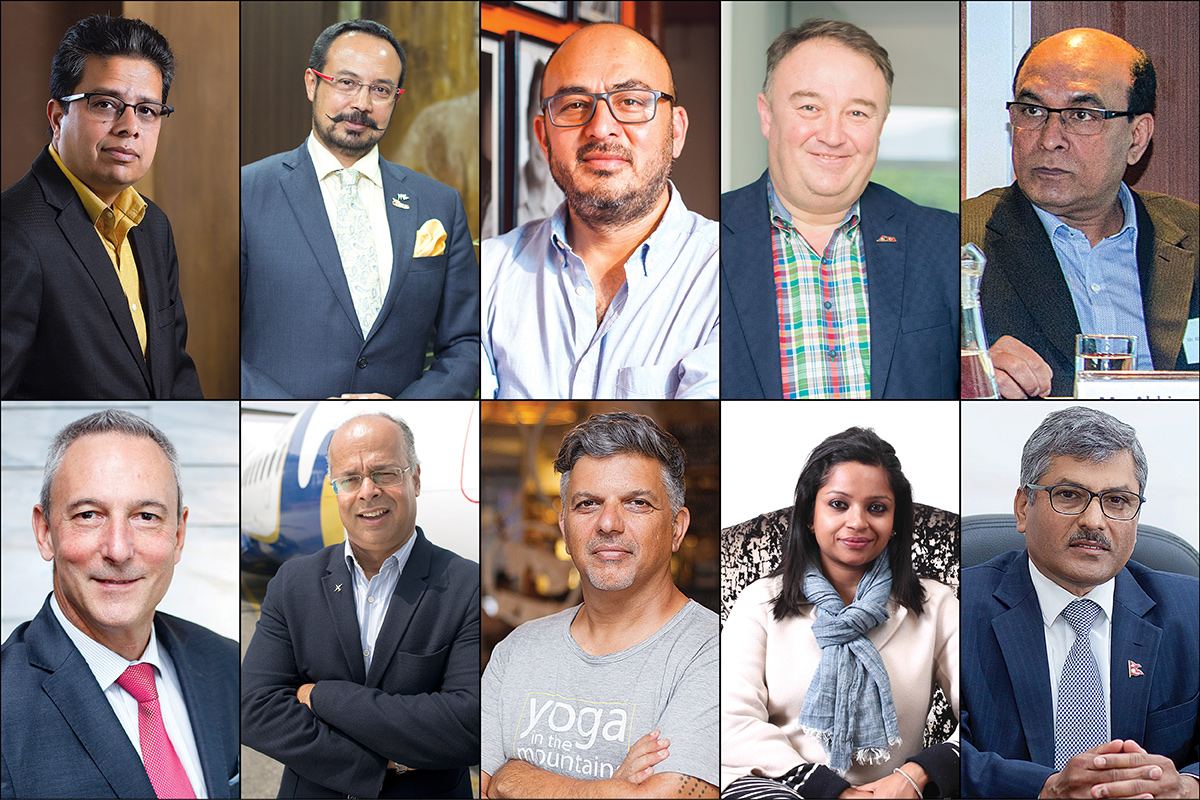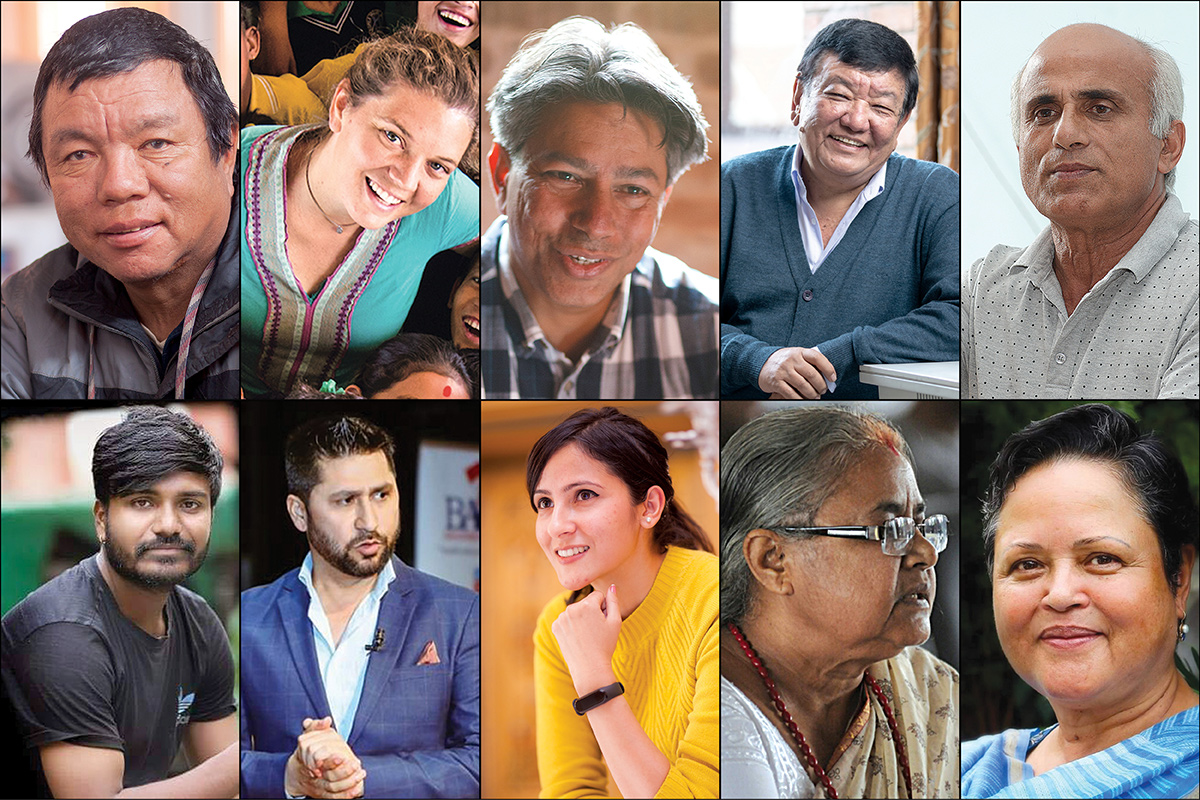
MAHABIR PUN
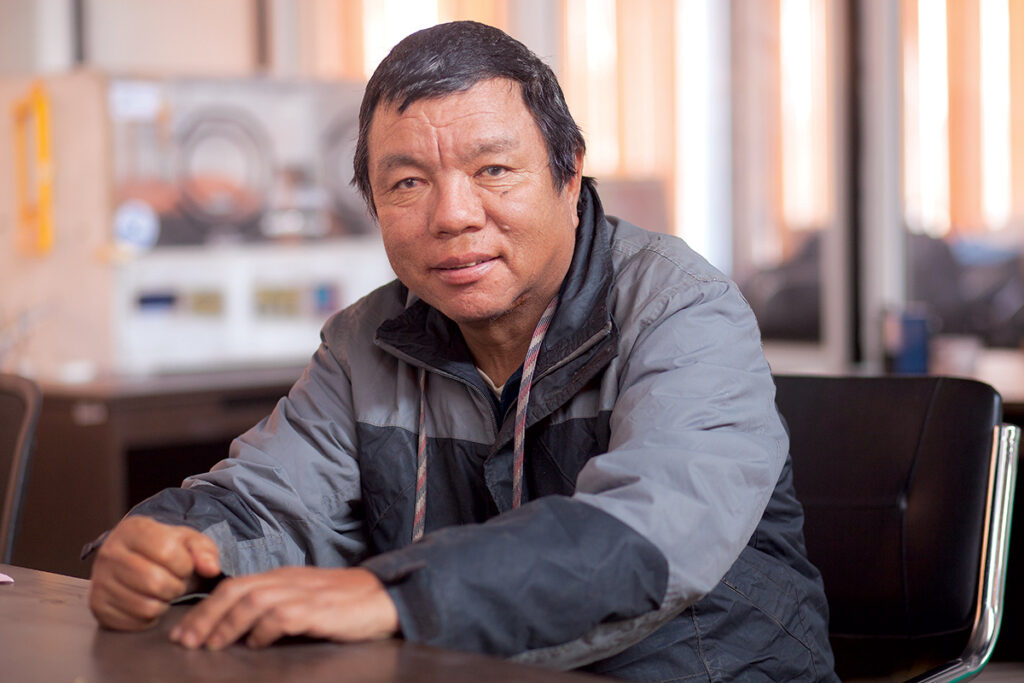 Pun founded the Nepal Wireless Networking Project in 2002 to build a local communication network using wireless technology to connect people in the Himalayan communities. In spite of multiple challenges, Pun was able to connect 13 mountain villages by 2006 to a Wi-Fi network and the internet. Since then, he has expanded the network and services to over 175 remote villages in 15 districts of Nepal. Today, those villages are using the Internet for e-learning, e-healthcare, local e-commerce, community discussions, money transfer and weather monitoring.
In 2007, Pun received the Ramon Magsaysay Award for his work in community leadership and innovative application of wireless technology in Nepal bringing progress to remote mountain areas by connecting his village to the wold. Pun also received an Honorary Doctorate of Humane Letters from the University of Nebraska.
After the country was hit with Covid19 pandemic, to help mitigate the spread of the virus, Pun at National Innovation Center, a research institution he heads as Chairperson, along with his team has been involved in designing, building and producing PPEs, face shields, Corona swab collection booths, aerosol box, ventilators, UVC disinfection box, nursing robot, nasal swabs, dead body bags, and fabric for mask, besides repair of much needed ventilators.
Pun founded the Nepal Wireless Networking Project in 2002 to build a local communication network using wireless technology to connect people in the Himalayan communities. In spite of multiple challenges, Pun was able to connect 13 mountain villages by 2006 to a Wi-Fi network and the internet. Since then, he has expanded the network and services to over 175 remote villages in 15 districts of Nepal. Today, those villages are using the Internet for e-learning, e-healthcare, local e-commerce, community discussions, money transfer and weather monitoring.
In 2007, Pun received the Ramon Magsaysay Award for his work in community leadership and innovative application of wireless technology in Nepal bringing progress to remote mountain areas by connecting his village to the wold. Pun also received an Honorary Doctorate of Humane Letters from the University of Nebraska.
After the country was hit with Covid19 pandemic, to help mitigate the spread of the virus, Pun at National Innovation Center, a research institution he heads as Chairperson, along with his team has been involved in designing, building and producing PPEs, face shields, Corona swab collection booths, aerosol box, ventilators, UVC disinfection box, nursing robot, nasal swabs, dead body bags, and fabric for mask, besides repair of much needed ventilators.
MAGGIE DOYNE
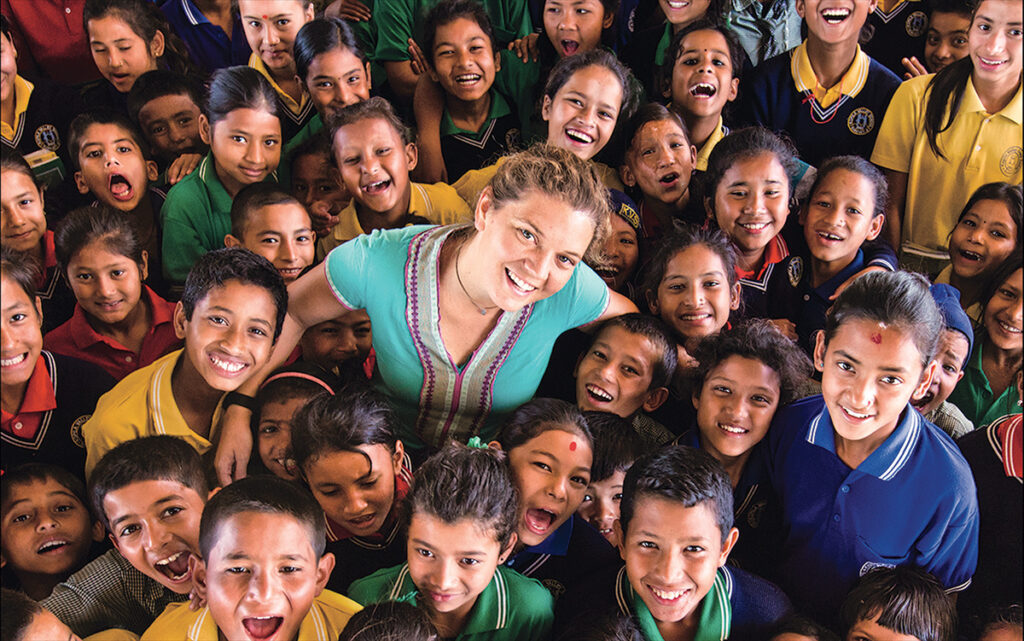 A resident of New Jersey in the United States soon after her high school graduation travelled to Nepal. Impacted deeply, she returned to purchase land in Surkhet and with the engagement of the local Nepali community built what is now known as the Blinknow Foundation in 2007 to serve the needs of vulnerable Nepali children. The Foundation fulfils its mission by providing financial support and management oversight to the Children’s Home and Kopila Valley School in Surkhet besides running a health clinic and a women’s center. The Kopila Valley School provides free, quality education to more than 400 students.
Maggie Doyne along with co founder Top Malla and volunteers and staff work every day to make sure the kids get what they need to build healthy, stable lives so they can be leaders in their communities, their country, and the world. She has also been at the forefront of providing humanitarian assistance to people crossing over the border during the pandemic.
Doyne is the recipient of the 2015 CNN Hero Award. While her work is focused in Nepal, she speaks all over the world in the hope of inspiring others to start projects that will generate positive changes in the world.
A resident of New Jersey in the United States soon after her high school graduation travelled to Nepal. Impacted deeply, she returned to purchase land in Surkhet and with the engagement of the local Nepali community built what is now known as the Blinknow Foundation in 2007 to serve the needs of vulnerable Nepali children. The Foundation fulfils its mission by providing financial support and management oversight to the Children’s Home and Kopila Valley School in Surkhet besides running a health clinic and a women’s center. The Kopila Valley School provides free, quality education to more than 400 students.
Maggie Doyne along with co founder Top Malla and volunteers and staff work every day to make sure the kids get what they need to build healthy, stable lives so they can be leaders in their communities, their country, and the world. She has also been at the forefront of providing humanitarian assistance to people crossing over the border during the pandemic.
Doyne is the recipient of the 2015 CNN Hero Award. While her work is focused in Nepal, she speaks all over the world in the hope of inspiring others to start projects that will generate positive changes in the world.
RABINDRA PURI
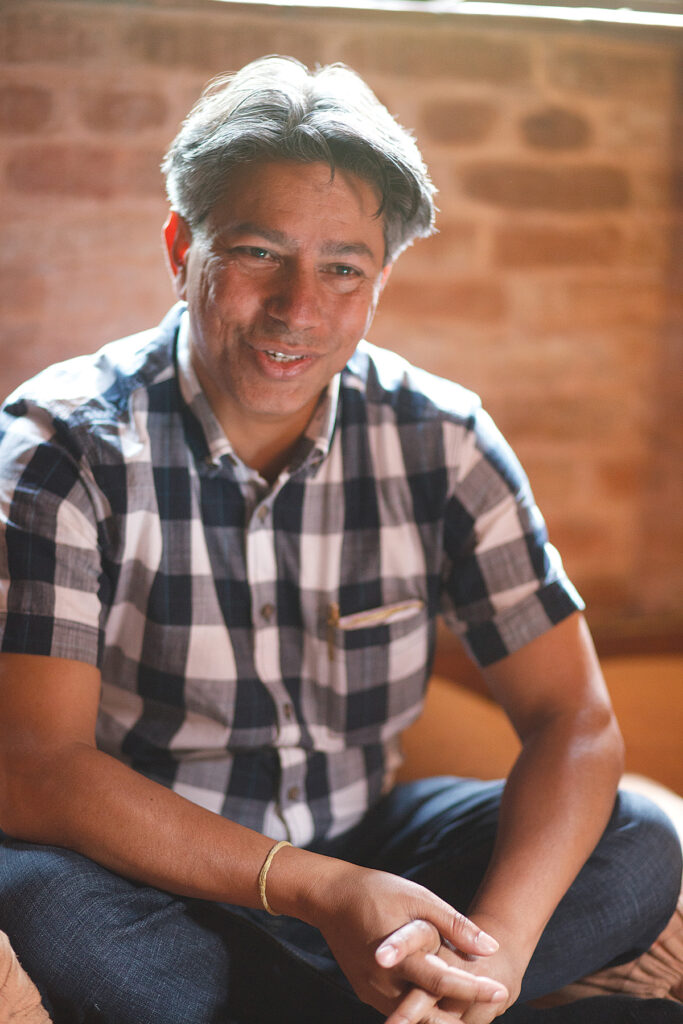 Rabindra Puri has been preserving traditional buildings since 1999. Puri, an architect, sculptor, artist and now a heritage conversationalist, is the first Nepali man to be honoured by UNESCO Asia Pacific Heritage Award for conservation.
Currently he is working towards building Panauti a traditional architectural town by 2030. He is involved in three kinds of work in Panauti. First, restoring of old buildings; second, converting visually unappealing buildings into traditional beauty and lastly, constructing new buildings in traditional style. Also through an ambitious project, The Museum of Stolen Art, he aims to highlight and help avoid art theft prevalent in the country. The museum will house replicas of 50 of Nepal’s lost artworks dating back to the 7th century.
Further, he aims to build one model school in every district. So far he has constructed 14; the first one is in Fulbari of Kavre district.
Rabindra Puri has been preserving traditional buildings since 1999. Puri, an architect, sculptor, artist and now a heritage conversationalist, is the first Nepali man to be honoured by UNESCO Asia Pacific Heritage Award for conservation.
Currently he is working towards building Panauti a traditional architectural town by 2030. He is involved in three kinds of work in Panauti. First, restoring of old buildings; second, converting visually unappealing buildings into traditional beauty and lastly, constructing new buildings in traditional style. Also through an ambitious project, The Museum of Stolen Art, he aims to highlight and help avoid art theft prevalent in the country. The museum will house replicas of 50 of Nepal’s lost artworks dating back to the 7th century.
Further, he aims to build one model school in every district. So far he has constructed 14; the first one is in Fulbari of Kavre district.
Dr. SANDUK RUIT
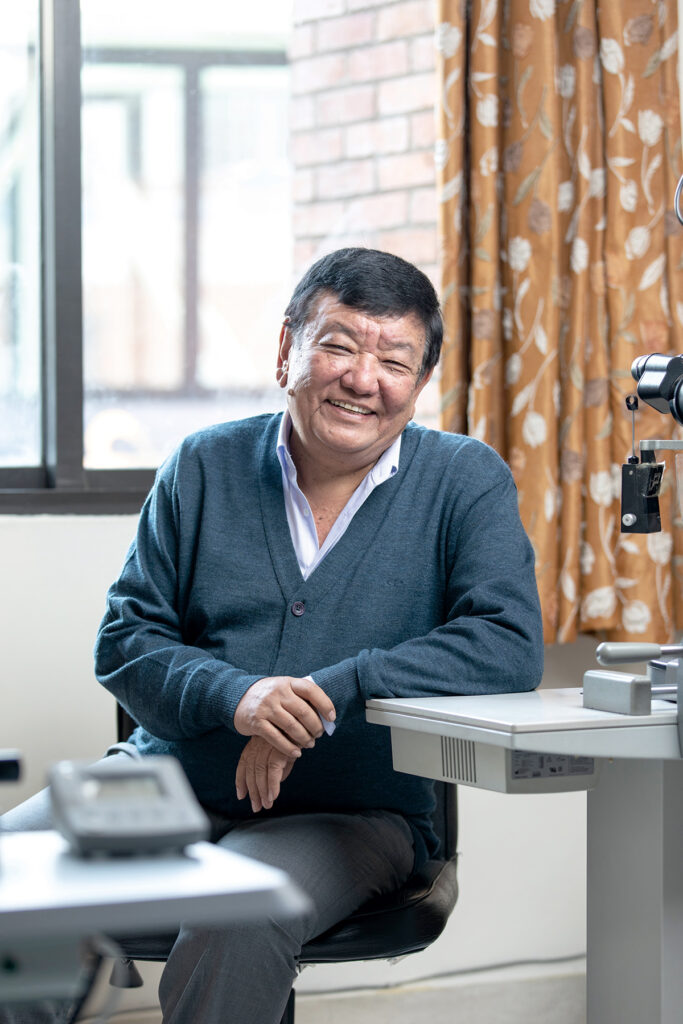 Dr. Sanduk Ruit is known as “the doctor who saved 100,000 eyes” and is even cited by many as the ‘God of Sight’. He is attributed with restoring sight to more people than anyone in human history. Born in a remote Himalayan village, Ruit lost his sister to treatable tuberculosis when he was 17. The tragedy imbued him with the belief that everyone, regardless of income, deserved quality healthcare. He decided to direct his energies toward the treatment of cataracts, a condition responsible for half of all global blindness cases. Cataracts are easily treatable in developed regions, but treatment is difficult and prohibitively expensive in poorer parts of the world.
Having perfected the technique and system, Ruit then went on a mission to take it to other impoverished corners of the world: to China, India, Indonesia, Myanmar, Bhutan, Bangladesh, Vietnam, Ethiopia, and even North Korea. Ruit knew these parts of the world well and the low-cost, high-quality, sutureless surgical technique he devised could be performed effectively in mobile eye centres.
Dr. Sanduk Ruit is known as “the doctor who saved 100,000 eyes” and is even cited by many as the ‘God of Sight’. He is attributed with restoring sight to more people than anyone in human history. Born in a remote Himalayan village, Ruit lost his sister to treatable tuberculosis when he was 17. The tragedy imbued him with the belief that everyone, regardless of income, deserved quality healthcare. He decided to direct his energies toward the treatment of cataracts, a condition responsible for half of all global blindness cases. Cataracts are easily treatable in developed regions, but treatment is difficult and prohibitively expensive in poorer parts of the world.
Having perfected the technique and system, Ruit then went on a mission to take it to other impoverished corners of the world: to China, India, Indonesia, Myanmar, Bhutan, Bangladesh, Vietnam, Ethiopia, and even North Korea. Ruit knew these parts of the world well and the low-cost, high-quality, sutureless surgical technique he devised could be performed effectively in mobile eye centres.
Dr. GOVINDA KC
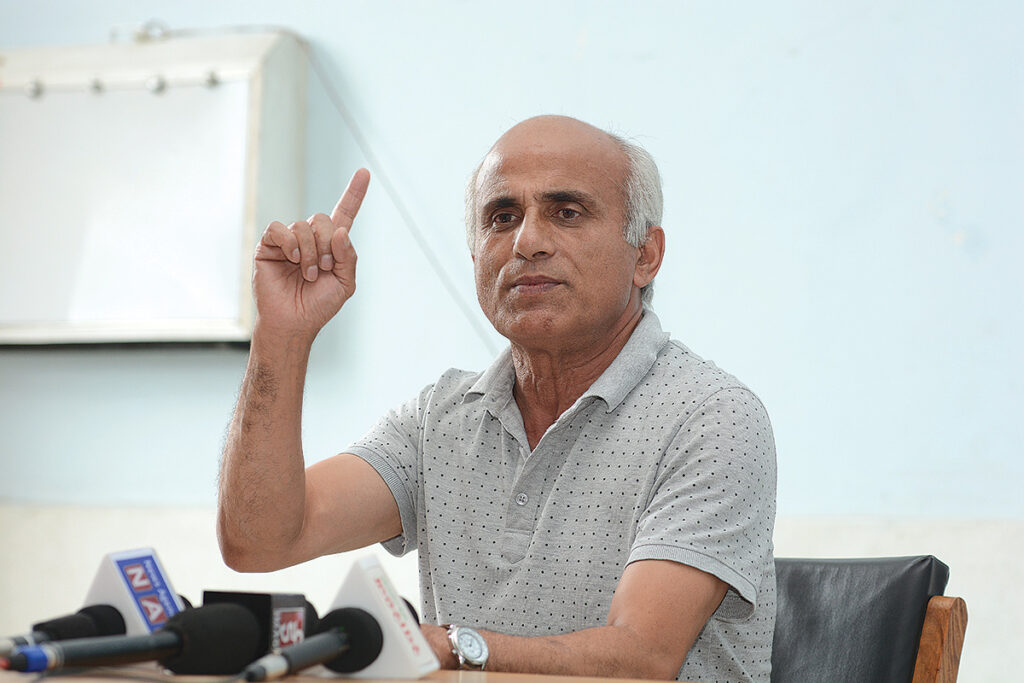 A senior orthopaedic surgeon, Dr. KC is revered as the conscience of the society and thereby put on a high pedestal. Concurrently, he is dismissed as a mad doctor who stages hunger strikes needlessly provoked by those with personal vendetta against the government. Whichever side one is on, it is an irony that a citizen has to go on a hunger strike to poke the government to do its duty, to take care of the basic human right of its citizens - the right to health. On its part, the government tags him as a disruptor of peace and arrests him.
His persistent agitation against medical mafia, politicisation of medical institutions, lack of reforms in the medical field and call for medical care for the poor and the marginalised have led him to sit for his 19th fast-unto-death till date. He is known for his munificence and self-sacrificing personality for the goodwill of others.
A senior orthopaedic surgeon, Dr. KC is revered as the conscience of the society and thereby put on a high pedestal. Concurrently, he is dismissed as a mad doctor who stages hunger strikes needlessly provoked by those with personal vendetta against the government. Whichever side one is on, it is an irony that a citizen has to go on a hunger strike to poke the government to do its duty, to take care of the basic human right of its citizens - the right to health. On its part, the government tags him as a disruptor of peace and arrests him.
His persistent agitation against medical mafia, politicisation of medical institutions, lack of reforms in the medical field and call for medical care for the poor and the marginalised have led him to sit for his 19th fast-unto-death till date. He is known for his munificence and self-sacrificing personality for the goodwill of others.
BABLU GUPTA
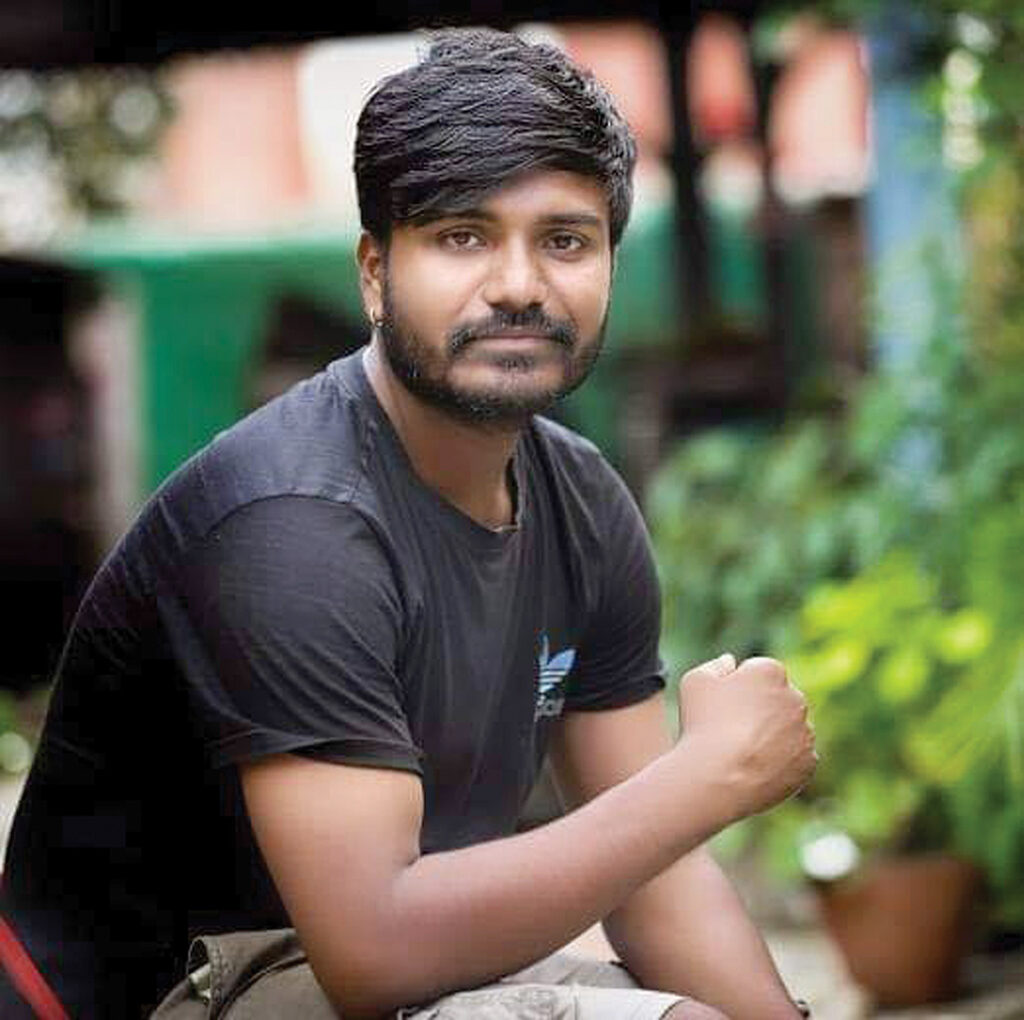 Bablu Gupta is Co-founder of 100’s Group Nepal. The group first came into prominence when they installed a clothe bank at Anamnagar for the poor and needy. Later on Tinkune, Samakhusi, Gaushala, Kalanki, Lalitpur and Bhaktapur also witnessed people donating and receiving clothes at designated clothe bank booths; they then opened clothe banks in Chitwan, Dadeldhura, Dhangadhi and Biratnagar.
The group of social activists also launched a program ‘Any Time Meal’ to feed street dogs and birds supported by other groups. Additionally they have worked on heritage conservation.
But they came into spotlight majorly when the organisation headed food distribution campaigns at Khula Manch during the pandemic-led lockdown. When the whole country was cocooned in safe spaces, the social workers at 100’s Group Nepal led by Bablu Gupta marched out and fed between 700 to a thousand hungry and jobless people every day, and the mission continues.
Bablu Gupta is Co-founder of 100’s Group Nepal. The group first came into prominence when they installed a clothe bank at Anamnagar for the poor and needy. Later on Tinkune, Samakhusi, Gaushala, Kalanki, Lalitpur and Bhaktapur also witnessed people donating and receiving clothes at designated clothe bank booths; they then opened clothe banks in Chitwan, Dadeldhura, Dhangadhi and Biratnagar.
The group of social activists also launched a program ‘Any Time Meal’ to feed street dogs and birds supported by other groups. Additionally they have worked on heritage conservation.
But they came into spotlight majorly when the organisation headed food distribution campaigns at Khula Manch during the pandemic-led lockdown. When the whole country was cocooned in safe spaces, the social workers at 100’s Group Nepal led by Bablu Gupta marched out and fed between 700 to a thousand hungry and jobless people every day, and the mission continues.
RABI LAMICHHANE
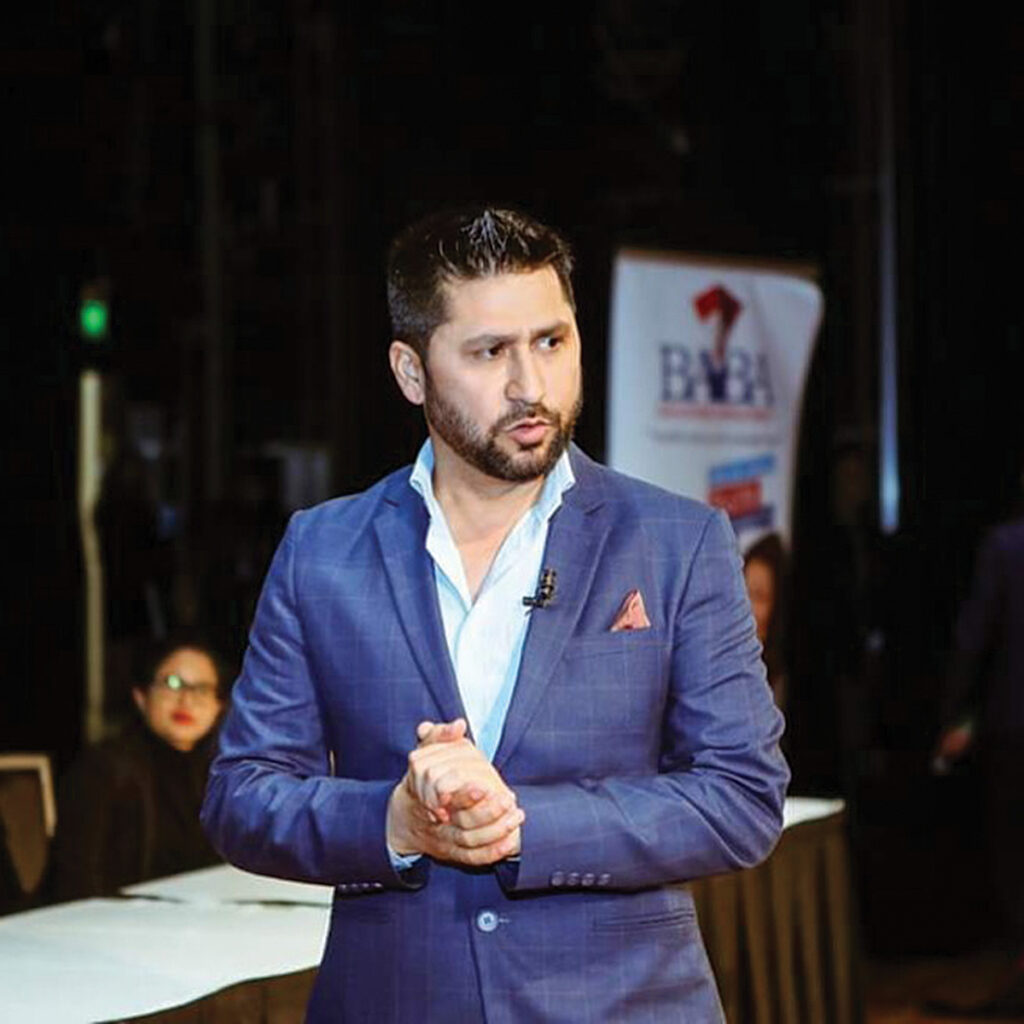 Rabi Lamichhane is a name synonymous with television for change in Nepal. He is hailed for his unconventional presentation style. The youth, the poor and those facing injustice considered him a harbinger of social change and justice because he exposes corruption and exploitation cases prevalent in government, businesses, educational institutions and the society at large on his TV show Sidha Kura Janata Sanga.
Lamichhane has amassed a fair share of followers which was evident when he was arrested on the charge of ‘abetting suicide’ of a fellow journalist. Social media was inundated with calls for his release and a large crowd staged protest and took to the streets. He was aquitted soon after.
Occasionally, Lamichhane becomes the talk of the town partly for the events in his personal life and partly for the issues he uses to deal in his show. Love him or hate him but one cannot ignore him.
Arguably the most popular TV show host in Nepal right now, Lamichhane first came to prominence when he set the world record by hosting a marathon television talk show. His departure from News 24, the TV channel where he worked has led people to come up with multiple conjectures, the most popular one being that he is starting his own TV channel very soon.
Rabi Lamichhane is a name synonymous with television for change in Nepal. He is hailed for his unconventional presentation style. The youth, the poor and those facing injustice considered him a harbinger of social change and justice because he exposes corruption and exploitation cases prevalent in government, businesses, educational institutions and the society at large on his TV show Sidha Kura Janata Sanga.
Lamichhane has amassed a fair share of followers which was evident when he was arrested on the charge of ‘abetting suicide’ of a fellow journalist. Social media was inundated with calls for his release and a large crowd staged protest and took to the streets. He was aquitted soon after.
Occasionally, Lamichhane becomes the talk of the town partly for the events in his personal life and partly for the issues he uses to deal in his show. Love him or hate him but one cannot ignore him.
Arguably the most popular TV show host in Nepal right now, Lamichhane first came to prominence when he set the world record by hosting a marathon television talk show. His departure from News 24, the TV channel where he worked has led people to come up with multiple conjectures, the most popular one being that he is starting his own TV channel very soon.
BONITA SHARMA
 Bonita Sharma is the Co-founder and CEO of Social Changemakers and Innovators (SOCHAI) – a youth-led non-profit organisation that works towards improving health, hygiene and nutrition of people particularly women, children and girls in Nepal through innovation, education and entrepreneurship. Sharma was listed by BBC as one of the 100 Most Influential Women in the World in 2019. She has been recognised by UNESCO as a female champion for educating women and girls in Nepal. She was also the winner of One Young World Lead 2030 Challenge and UNICEF Asia Pacific Youth Innovation Challenge 2016 for her idea of ‘Nutribeads’ bracelet – a low tech wearable nutrition education tool. She also made it to the BBC 100 Women 2019 List. She is one of the winners of 2020 Goalkeepers Global Goals Award given by Bill & Melinda Gates Foundation. She is also a member of Provincial Nutrition and Food Security Steering Committee of Bagmati Province.
Bonita Sharma is the Co-founder and CEO of Social Changemakers and Innovators (SOCHAI) – a youth-led non-profit organisation that works towards improving health, hygiene and nutrition of people particularly women, children and girls in Nepal through innovation, education and entrepreneurship. Sharma was listed by BBC as one of the 100 Most Influential Women in the World in 2019. She has been recognised by UNESCO as a female champion for educating women and girls in Nepal. She was also the winner of One Young World Lead 2030 Challenge and UNICEF Asia Pacific Youth Innovation Challenge 2016 for her idea of ‘Nutribeads’ bracelet – a low tech wearable nutrition education tool. She also made it to the BBC 100 Women 2019 List. She is one of the winners of 2020 Goalkeepers Global Goals Award given by Bill & Melinda Gates Foundation. She is also a member of Provincial Nutrition and Food Security Steering Committee of Bagmati Province.
RITA THAPA
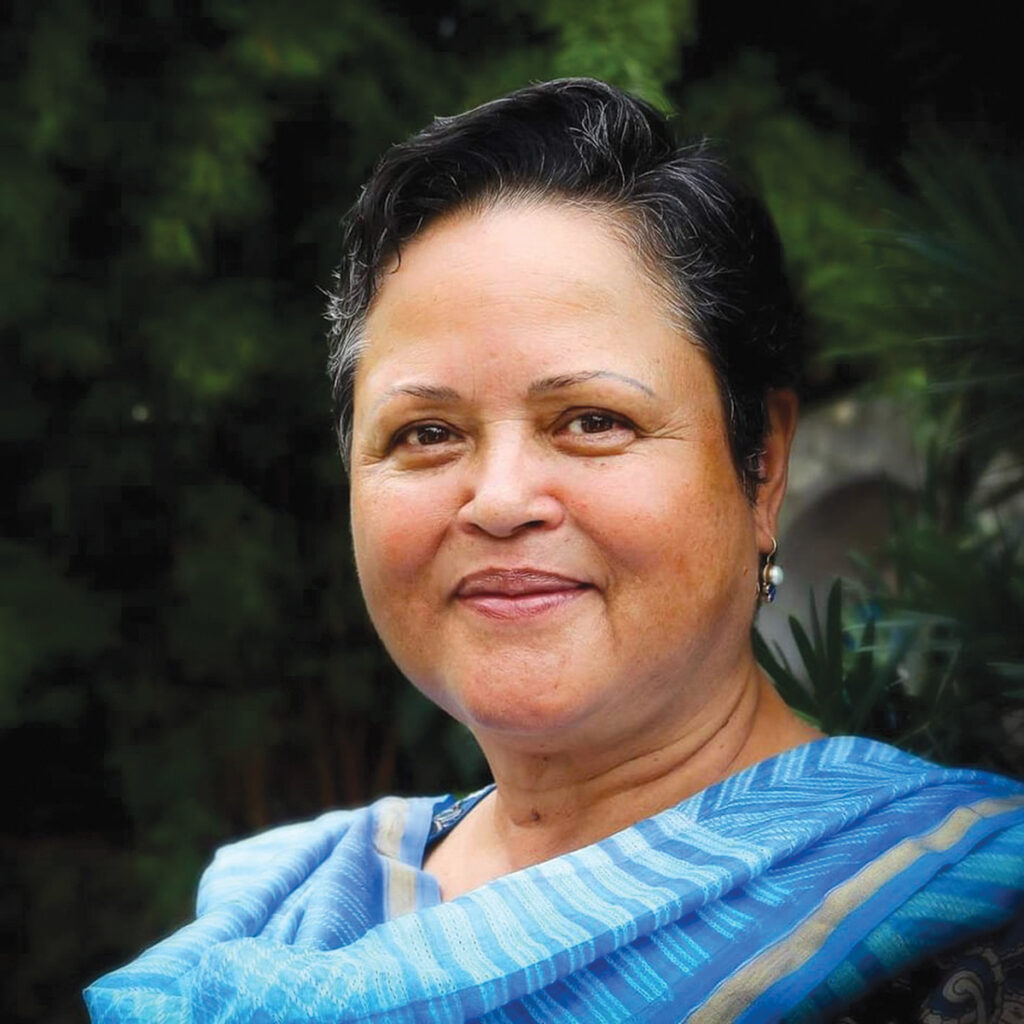 The founder of Tewa, Rita Thapa is a strong feminist community activist. She is credited for pioneering the idea of local, social philanthropy in Nepal which is an innovative concept to introduce in a country like ours because the country essentially functions on foreign and multilateral donors.
For her initiative in conflict transformation and peace building through Nagarik Awaz, an organisation she founded and led, Thapa was named an Ashoka Fellow. She served as a past Board Member and Chair of the Global Fund for Women and the Urgent Action Fund. In 2005, she was included in the 1000 Women for Peace Nomination for the Nobel Peace Prize. She also served on the Board of the Global Fund for Community Foundation and the South Asian Women’s Fund.
The founder of Tewa, Rita Thapa is a strong feminist community activist. She is credited for pioneering the idea of local, social philanthropy in Nepal which is an innovative concept to introduce in a country like ours because the country essentially functions on foreign and multilateral donors.
For her initiative in conflict transformation and peace building through Nagarik Awaz, an organisation she founded and led, Thapa was named an Ashoka Fellow. She served as a past Board Member and Chair of the Global Fund for Women and the Urgent Action Fund. In 2005, she was included in the 1000 Women for Peace Nomination for the Nobel Peace Prize. She also served on the Board of the Global Fund for Community Foundation and the South Asian Women’s Fund.
SUSHILA KARKI
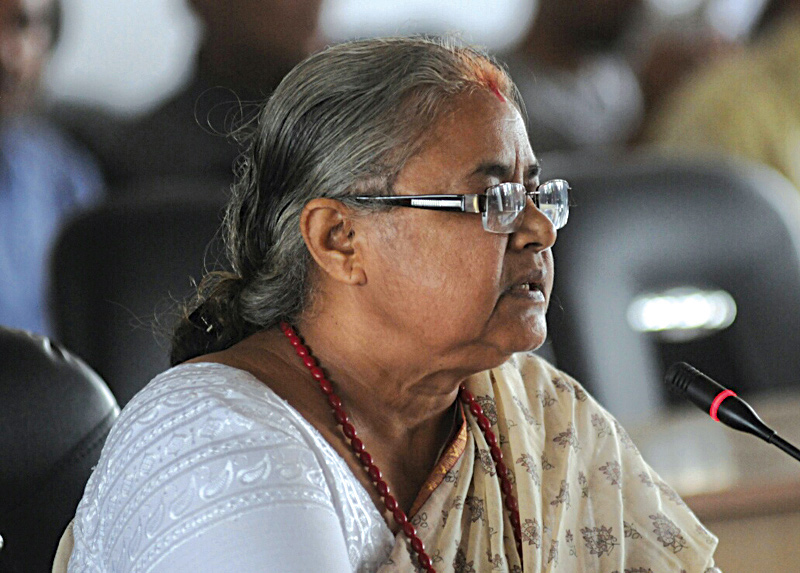 The former Chief Justice of the Supreme Court of Nepal, Sushila Karki is known for playing by the book and not bowing down to political pressure. The first woman to hold the position, but not the last, Karki had proved her mettle in her dealing of high-profile cases. Her name was splashed on the front pages of the national dailies when an impeachment motion was filed against her. She was suspended on the charge of biasness and interfering in executive orders in the appointment of the chief of police. Sher Bahadur Deuba’s favourite Jaya Bahadur Chand was recommended by then government - ruling coalition of Nepali Congress and CPN-Maoist Center - but the Supreme Court led by Sushila Karki ruled that the highest-ranking officer Nawaraj Silwal should take the job. Her impeachment was denounced by legal scholars and the public alike. Also, it was during her term that the court removed Lokman Singh Karki, the then chief of CIAA, out of office.
The former Chief Justice of the Supreme Court of Nepal, Sushila Karki is known for playing by the book and not bowing down to political pressure. The first woman to hold the position, but not the last, Karki had proved her mettle in her dealing of high-profile cases. Her name was splashed on the front pages of the national dailies when an impeachment motion was filed against her. She was suspended on the charge of biasness and interfering in executive orders in the appointment of the chief of police. Sher Bahadur Deuba’s favourite Jaya Bahadur Chand was recommended by then government - ruling coalition of Nepali Congress and CPN-Maoist Center - but the Supreme Court led by Sushila Karki ruled that the highest-ranking officer Nawaraj Silwal should take the job. Her impeachment was denounced by legal scholars and the public alike. Also, it was during her term that the court removed Lokman Singh Karki, the then chief of CIAA, out of office.
Published Date: February 24, 2021, 12:00 am
Post Comment
E-Magazine
RELATED People To Watch


